 173771
173771
Introduction
This website doesn’t support or promote any political party.
The www.moldovenii.md project is not part of any political advertising campaigns.
Nobody knows how long the words “Moldova”, “Moldavians” have been existing. Nobody knows the exact origin of these words either. They are probably derived from one of the toponyms of the ancient Geto-Dacians, whose names of towns and fortresses ended with the termination “dava” - Arcidava, Buridava, Petrodava, Rusidava… Moldava. Maybe it is the name of one of the ancient Indo-European tribes, which settled down between the Carpathians and the Dniester, many thousand years ago, or it’s a part of the territory which those tribes occupied.
It is obvious that these terms had been existing for a much longer period of time than our state has, which was created in 1359 A.D. (according to certain written sources).
These words perhaps existed thousands of years, because nobody knows when the river “Моldau” in the Czech Republic was given its name, a river called later ``Vltava`` by the local population. Nobody knows when the rivers in Romania were called “Moldova” and ”Moldovitsa”, or when the highest mountain in the Carpathians (2544 m) was named “Moldoveanu”, all of these locations weren’t situated on the historic Moldavian territory.
We don’t know when and why the ancient towns and fortresses, scattered over Central and Southern Europe, were named with words that had the root “mold” in them. This data is lost, but the ancient name of our nation, its country and language is mellifluous, it is nice and close to our hearts. This name was given us by our ancestors who created the glorious history of our past. Many of them died for their country with its name on their lips. This name is in our blood and soul.
This name helped us to elude assimilation by hostile nations, it helped us create a wonderful culture, it preserved our symbols, history, language and memory about our great ancestors. This name is closely connected with our lands which we truly love. Thanks to this name, we are among the 200 nations that have their own statehood.
Moldavians made and are still making a significant contribution to the Romanian culture. The majority of Romanian classics and modern representatives of music, literature, art and philosophy are Moldavians. Moldavians have played an important part in the liberation of Western Moldova and Wallachia from the Ottoman Yoke, and also from the excessive guardianship of the Russian Empire. The Moldavian elite cultural representatives of the bourgeois and the military have played a crucial part in the unification of Moldova and Wallachia.
It was the Moldavians, who realized the importance of unification between the two brotherly nations into a state, as a necessary condition of their preservation, they made a major contribution to the ideological, political movement and accorded military support to this ideology. Unfortunately, after solving the problems actual at that time, our distinguished compatriots hadn’t paid proper attention to the importance of the international agreements about the names given to a nation and to the state.
Because our brightest pursued the idea of unification so diligently, they hadn’t noticed that they had been caught in a trap made by less educated, but more sophisticated in political intrigues, more numerous, practical and vigorous Wallachians, who had imposed a nations name historically alien to ours – “Romanians” and the state name – “Romania”. Our prominent compatriots, being guided by good intentions, fell into this trap, from which they were not able to get out, and dragged the majority of the Moldavians after themselves.
And here it is pertinent to recall Alecu Russo’s words, a Moldavian literature classic, who wrote in the fifties of the 19th century “…Poor Stefan Voda, where is he to see …? We are not Moldavians no more, but Romanians… I am afraid that in the farewell hour, when heaven pipes will call us to the last trial, we won’t be able to communicate and understand our ancestors neither trough speech, nor trough ideas…”
More than 150 years passed since those times, scientists from Moldova, Romania and other countries gathered a great number of data and artifacts that clearly show: the population living in modern Moldova and Romania has deep millenary roots on this territory, a fact proved by archaeological, anthropological, genetic, linguistic, culturogical evidence and other data. Today all impartial scientists understand that we, of course, are not the descendants of Rome. We have our own rich history and culture, considerably more ancient than Rome itself, which goes into the depths of history, formed not anywhere else but on our lands – on the territory of Dniester-Carpathian- Danube region.
Unfortunately, some of our compatriots – politicians, representatives of historical science, creative and pedagogical representatives, haven’t made proper efforts to study the history of their own nation, having lost the connection with its roots, they try to recreate the events that took place in the 19th century in Western Moldova and the events that happened at the beginning of 1918 when the territory of the modern Republic of Moldova was connected to Romania.
In spite of the existence of a great deal of information and scientifically proved facts, they are still trying to deprive us, the Moldavians of the Republic of Moldova, of our name, historical memory, and history. We are imposed to build a future on the basis of a foreign culture and strange conditions, they want us to be deprived of ourselves, and they want to do the same thing with us, as they did with our brothers – Western Moldavians 150 years ago.
It got to the point that our streets, settlements, wines and even children are called after Roman emperors, who by the strength of the whole empire destroyed the ancient state of our ancestors, Geto-Dacians.
We are not looking for enemies; we are full of love and positive attitude to other nations and their interests. We consider the inhabitants of Rumania to be our brothers – carriers of the language and culture similar to ours (with some reservations). We don’t act against anybody, we act for ourselves, for our children and parents, for our long-suffering people. They try to cut off our roots, but we are people with our own ancient culture, language and history. They want us to become the successors of a multilingual, multinational population of the Roman Empire that was oriented at ”bread and circuses”, after allegedly killing all Geto-Dacians, they supposedly initiated the ethno genesis of Moldavians and those who today call themselves Romanians. Can it be so that people with such a rich highly spiritual culture with settled traditions and customs, homogeneous genetically and anthropologically originate from multiethnic (from North Africans and Semites to Iberians and Gauls) Roman legionnaires and colonists that occupied only a small part of Dacia? The answer is obvious – it is a great misconception, a historical mistake which must be corrected once and for all in the interests of all Moldavians, and probably for all the people in Romania too.
We are told not to raise this issue, it is necessary now to solve economic and social problems instead of speaking about the nations name, about the roots… What’s the difference? Those who speak in this way either don’t understand what they are talking about, or purposely lead us away from the core of the problem, from what our people and state can regenerate. How can the state be regenerated when its finances and economy is weak, the educational system is in the process of destruction, where youth and culture is degrading and the majority of working-age population goes abroad to earn money?...
The answer is clear to us as day – from the regeneration of national morale, from fixing the name of the nation in its mind, their roots, their history, their symbols and their heroes, from the feeling of pride for their history, culture, state and people. From feeling the nation as a single entity, a single entity that can come together to achieve a better future.
We can’t wait until our politicians recall their love to the country, the people should start to elaborate a national wide idea and create effective strategic programs for the country development.
Our politicians are ``very busy`` people. They are engaged in permanent elections, the forming and breaking up of coalitions, the distribution of posts, having arguments and discussions on insignificant topics given by popular TV and radio channels.
Somebody successfully took aside our politicians from the main problems of the country and its people. Our politicians are busy. That’s why we, not pretending to their posts and status, have been doing our work for you, our citizens, and for them, our politicians. Only you, dear compatriots, can judge how effectively this or that politician has been able to integrate into the program of the country development and contributed to its realization. You are to choose the best among them.
And we…, we are obliged to fight for ourselves, for our people, for our own preservation and development, leaning on the strong foundation created by our ancestors. Our project is the beginning of this fight. Don’t look for the author – there are many of us, this site is the soul of the Moldavians, our past, present and a powerful projection into the future, materially poor in the present, but spiritually rich people. Don’t look for the authors from idle curiosity, the website and our representatives will respond to all questions, study the site materials and you will find what has true value. You will stand with us, in the ranks of those who are committed to quickly bringing our people and the state, in the number of advanced nations of the world.
Dear compatriots and guests! Our project contains a great deal of diverse information about the history of the land on which Moldova is situated, about the ethno genesis of our nation, its language, history and state formation, about those who can call themselves an ethnic Moldavian, about our enormously rich culture and art , about our customs, about traditional holidays, about the cuisine and folk skilled craftsmen, about present and the planned future of our country, and many other things that can interest many Moldavians and friends of our people.
Welcome to the “Moldavians” project!
Dear friends, in order to make the use of the website easier we’ve decided to record a short video presentation and offer it to you! We advise to watch it preliminarily if this is the first time visiting our site.
În contextul lansării programului ”Satul European”, ce probleme vitale există în localitatea dumneavoastră?
- Statut:
- Sat
- Prima atestare:
- 1634
- Populația:
- 1862 locuitori
Sauca este un sat şi comună din raionul Ocniţa. Sauca este unicul sat din comuna cu acelaşi nume situat la o distanță de 21 km de orașul Ocnița și la 184 km de Chișinău. Conform datelor recensămîntului din anul 2004, populaţia satului constituia 1862 de oameni. Prima atestare documentară a satului Sauca datează din anul 1634.





 15 noiembrie - Calendarul celor mai importante evenimente din trecut și prezent
15 noiembrie - Calendarul celor mai importante evenimente din trecut și prezent 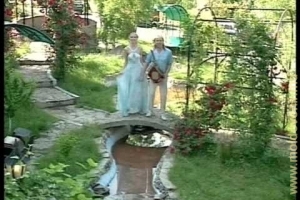 MELODIA ZILEI: Anatol şi Irina Bivol - Ileana și Constantin
MELODIA ZILEI: Anatol şi Irina Bivol - Ileana și Constantin 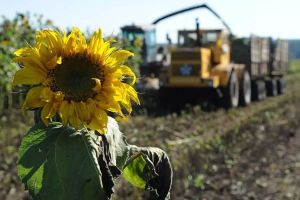 Loviți de secetă! Fermierii au obținut o recoltă mai mică de floarea-soarelui
Loviți de secetă! Fermierii au obținut o recoltă mai mică de floarea-soarelui  Moldografia: Clădirea conacului moșiei Vila Mîndîc
Moldografia: Clădirea conacului moșiei Vila Mîndîc 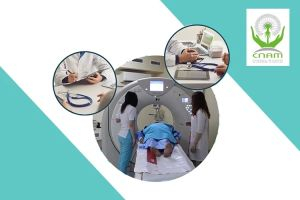 Persoanele cu maladii oncologice beneficiază mai rapid de investigații de înaltă…
Persoanele cu maladii oncologice beneficiază mai rapid de investigații de înaltă… 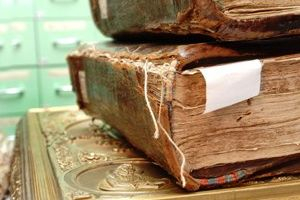 Adunarea ţării în Moldova la 582 de ani
Adunarea ţării în Moldova la 582 de ani 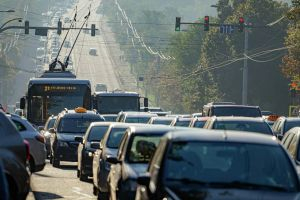 În municipiul Chișinău va fi inaugurat Centrul de Monitorizare a Traficului
În municipiul Chișinău va fi inaugurat Centrul de Monitorizare a Traficului 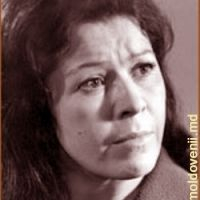 Marica Balan – o legendă a scenei
Marica Balan – o legendă a scenei 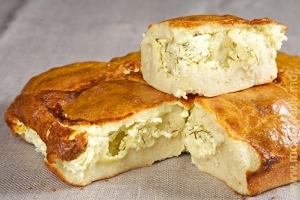 REŢETA ZILEI: Cumaci - pîine cu umplutură de brînză
REŢETA ZILEI: Cumaci - pîine cu umplutură de brînză 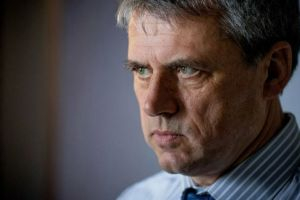 Dimitri Ciubașenko: „Maia Sandu încearcă să oprească căderea sa ulterioară”
Dimitri Ciubașenko: „Maia Sandu încearcă să oprească căderea sa ulterioară” 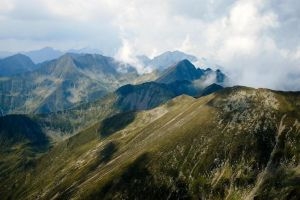 Moldovenii – temelia ţării
Moldovenii – temelia ţării 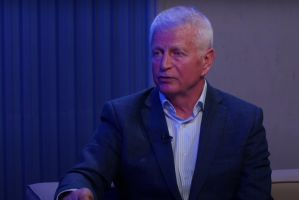 Vladimir Panfilov: „În 1992 nu a existat suficientă înțelepciune pentru a negoci…
Vladimir Panfilov: „În 1992 nu a existat suficientă înțelepciune pentru a negoci… 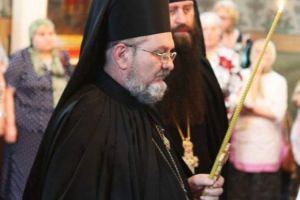 71 de ani de la nașterea protoiereului mitrofor, Mihail Panas
71 de ani de la nașterea protoiereului mitrofor, Mihail Panas  Rîul Ciuhur de la izvor pînă la vărsare (Slideshow)
Rîul Ciuhur de la izvor pînă la vărsare (Slideshow)  16 noiembrie - Calendarul celor mai importante evenimente din trecut și prezent
16 noiembrie - Calendarul celor mai importante evenimente din trecut și prezent 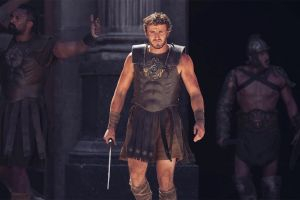 Ce evenimente culturale vor avea loc în ziua de 16 noiembrie
Ce evenimente culturale vor avea loc în ziua de 16 noiembrie  Moldografia: Vedere spre satul Pociumbeni, Rîșcani
Moldografia: Vedere spre satul Pociumbeni, Rîșcani  Victoria moldovenilor la Cătlăbuga
Victoria moldovenilor la Cătlăbuga 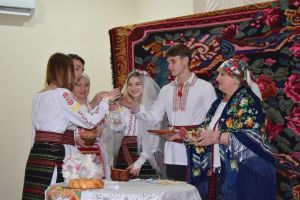 Liceul „Ștefan cel Mare” și muzeul Drochia, împreună pentru a păstra tradițiile…
Liceul „Ștefan cel Mare” și muzeul Drochia, împreună pentru a păstra tradițiile…  Cum pot fi utilizate frunzele uscate
Cum pot fi utilizate frunzele uscate 